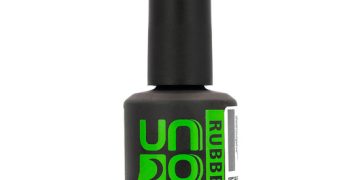The system of background checks for employees, students and volunteers in England and Wales has been streamlined since 2012. In that year, the Criminal Records Bureau (CRB) was merged with the Independent Safeguarding Authority (ISA) under the title of the Disclosure and Barring Service (DBS). This covers most of the workers in the UK; Scotland, which has its own legal system, operates Disclosure Scotland, as operated by the country’s devolved government. In both cases, the process of disclosure of a potential employee’s criminal record is now deemed to be a transparent, open and fair process, benefiting society as a whole, the general public, employers and employees alike.
Background Checks
Probably because of its history, the checks carried out by the DBS are often still referred to as “CRB” checks. In many ways, this is helpful because it is a person’s criminal record which the DBS investigates. As an arm of the Home Office, the service has complete access to all civilian police records relating to any British national. This includes “spent” convictions, where an offence happened long enough ago for it to be irrelevant; these offences, however, are not actually erased from a person’s record, for reasons which will become clear.
On applying for a job, voluntary post or some types of student placement, it may be necessary for an individual or employing organization to ask the DBS for a background check. Once this has been carried out, the individual in question will received a DBS Certificate UK workers and employers outside of Scotland can refer to in future. These checks do not have an expiry date; the disclosure on the certificate is valid for the day on which the checks were carried out.
Disclosure and Barring
As the name of the service suggests, certain types of disclosure can bar an individual from working in some situations. This automates the vetting process, which had seen a number of individuals in the past employed in jobs where they went on to cause physical or other harm, to members of the public or the institutions they worked for. Indeed, it is hoped that an unsuitable applicant will not apply for positions where a certain level of DBS check is required, saving time as well as potential danger.
This efficiency built into the DBS system means that a certificate will usually reach the applicant within a few working days. Where potential employers have requested the checks, both they and the applicant will receive a copy; for the highest level DBS vetting, the process is usually carried out within 48 hours. As well as allowing organizations to know who they are employing, it gives individuals access to exactly what criminal records are kept relating to their name at the present date.
Basic and Standard DBS Checks
Exactly what is disclosed will depend on the level of check carried out; these are divided into basic, standard and enhanced DBS checks. Basic checks are requested by the individual, and the certificate sent to them in the post; this can then be shown to a potential employer. Basic checks will show up any unspent convictions against a person’s name, and no more. This may help an organization make a final decision when recruiting for staff or volunteers.
Standard checks are carried out at the request of employers, and individuals receive copies of the certificate. Certain types of job and / or workplace require this level of check; criteria for these are set out clearly by the Home Office; positions will be those involving working with children or vulnerable adults, or in workplaces where the employee may come into contact with such people. A standard DBS check will show spent and unspent convictions, plus any cautions, reprimands and warnings; all of these are kept on the Police National Computer (PNC). Standard checks do not reveal “filtered” records.
Enhanced Checks
Enhanced DBS checks reveal everything in standard checks, plus any filtered results. Filters are put in place so that any results relating to certain offences do not appear on basic or standard checks, as they are deemed irrelevant. For enhanced checks, however, all filters are removed. This means that the DBS Certificate UK employers and individuals outside of Scotland receive will show every piece of information held on that individual by the PNC. It is hoped that this level of check will protect the most vulnerable in society, and help employers ensure they have the highest quality workforces.
















